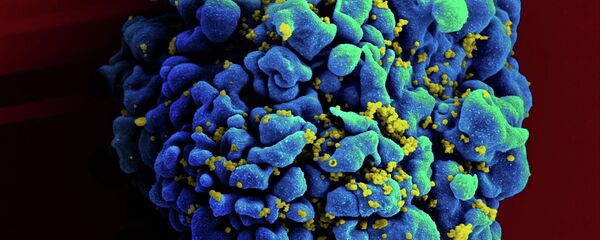Researchers from the Lewis Katz School of Medicine at Temple University in Philadelphia reported the successful application of a new genome editing technology, providing impressive results in the treatment of HIV.
The technology involves modifying a protein called Cas9, in a manner that makes it recognize the viral code in the DNA of a target cell. The modified protein is then added to blood samples from an infected patient, where it seeks out HIV DNA in immune cells. Once the protein finds the viral DNA, it releases an enzyme which removes the sequence. The ends of the cut genome then reassemble using the cell's native repair process. Cured cells are then transfused back to the patient.
According to the report, the transfusion of only 20 percent of modified immune cells could be enough to cure a patient.
"The findings are important on multiple levels. They demonstrate the effectiveness of our gene editing system in eliminating HIV from the DNA of immune cells and permanently inactivating its replication," said lead researcher Professor Kamel Khalili.
"Further, they show that the system can protect cells from reinfection and that the technology is safe for the cells, with no toxic effects."
Scientists suggest this treatment technique could and should be combined with existing antiviral medication, currently used to suppress the virus but not eliminate it.
Only currently observed in the laboratory environment, the method nonetheless received positive comments from scientists around the world.
Shaun Griffin, Executive Director of External Affairs at Terrence Higgins Trust, said: "This is a really exciting lab study that shows HIV can be eliminated from the DNA of human immune system cells."
Professor Matthew Cobb, of Manchester University called the method "an important step forward," noting that this technique can be used to not only "attack HIV in particular but also a number of other diseases."



